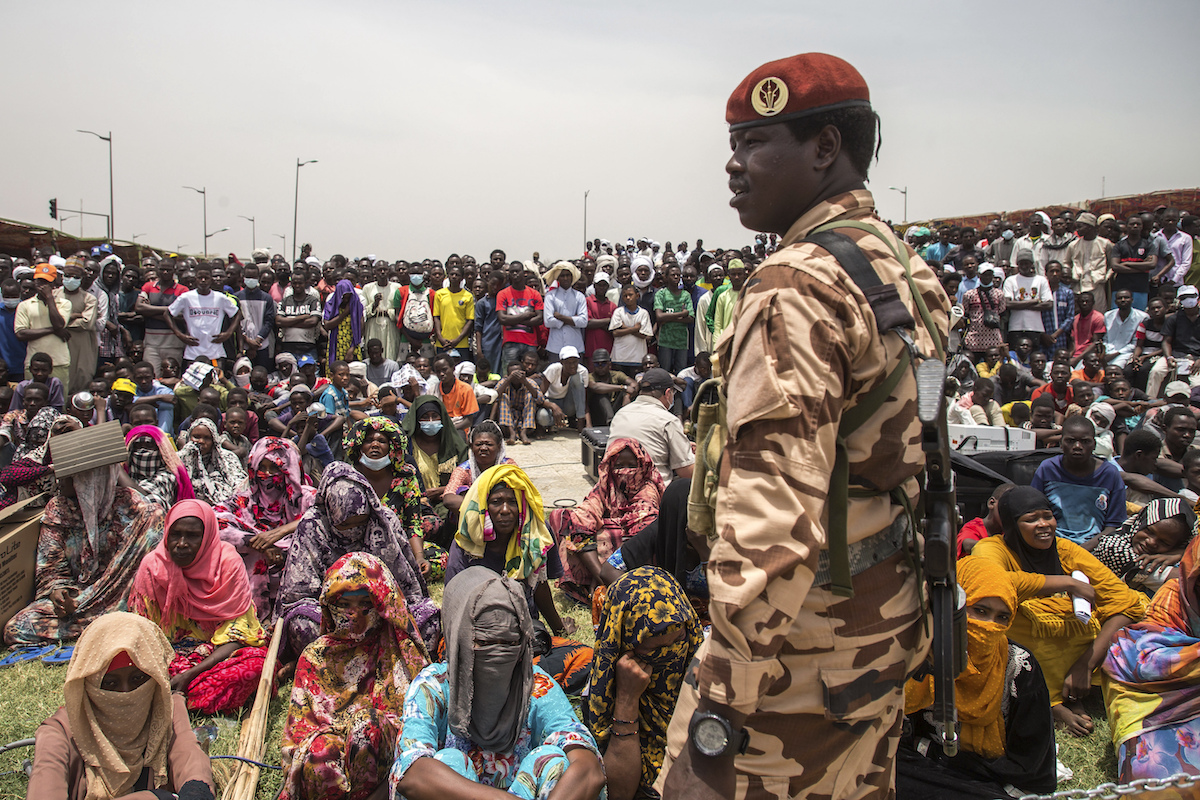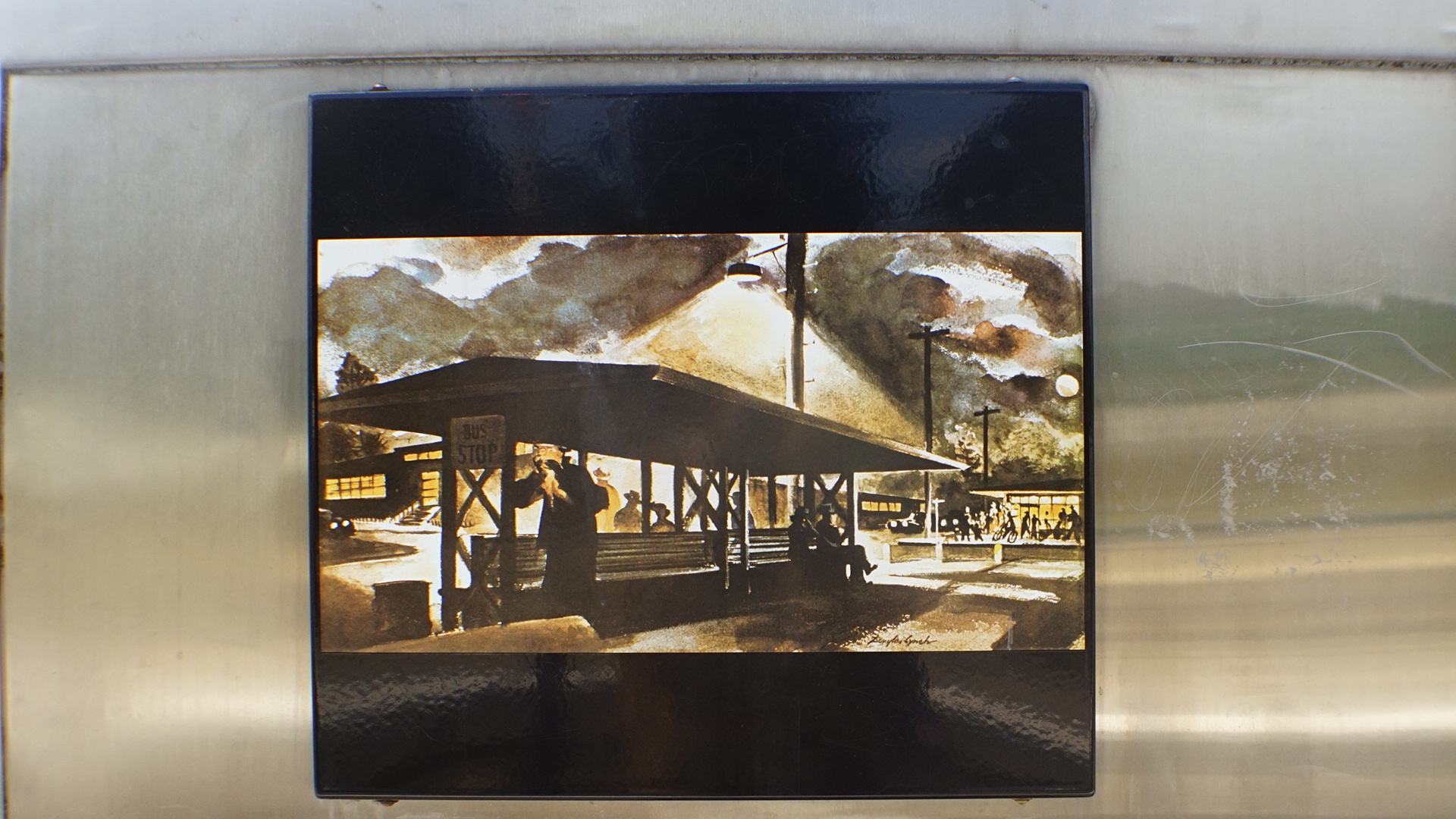On April 20, Chadian President Idriss Déby Itno was killed in action on a battlefield north of N’Djamena, the capital of Chad, according to the BBC. At 68 years old, he had been commanding his troops against a rebel insurgence, when he was wounded by an exploding shell.
“The Resident of the Republic, Head of State, Supreme Chief of the Army Idriss Déby Itno just drew his last breath while defending the nation’s integrity on the battlefield,” said army spokesperson General Azem Bermandoa.
Thousands of Chadians attended the former president’s funeral at the main square of N’Djamena, la Place de la Nation. Visitors packed the monument to mourn the shocking loss of their president.
Among the foreign key leaders attending was French President Emmanuel Macron, who gave a speech for the funeral.
“You lived as a soldier, you died as a soldier with weapons in hand,” Macron said. “You gave your life for Chad in defense of its citizens. We will not let anybody put into question or threaten today or tomorrow Chad’s stability and territorial integrity.”
Born the son of a sheep herder in 1952, Idriss Déby joined the Chadian military as a young man. He received a professional pilot license in France, before returning to Chad in 1976. Six years later, Déby would become commander-in-chief of the Chadian army and, nine years following a military coup against his former leader and ally Hissène Habré, he became the president of Chad.
Two days before his death, on April 18, Déby had just won the most recent presidential election—had he not died, he would be starting his sixth term as president this year.
Déby’s enduring reputation also came with a string of corruption cases and human rights abuses during his 30 years as president. Many of his high-ranking colleagues were personally selected from his Zaghawa ethnic group, whether they had experience for the role or not.
According to The New York Times, Déby was also an important player against the spread of Islamic extremism in the Sahel region of Africa. His forces supported French troops in their combat against groups like al-Qaeda and Boko Haram.
Despite his long and steady rule, Déby’s position was constantly put in danger by instability and internal conflicts, some of which were Déby’s own making. He was accused of squandering Chad’s considerable oil revenues, leading to extreme poverty, discontentment and anger among the people. Since the 1990s, a variety of rebel groups have attempted to overthrow Déby’s reign—it was one of these groups that allegedly ended Déby’s life.
On April 11, the same day as the presidential election, a group of dissidents known as the Front for Change and Concord in Chad (FACT) departed from their base in neighboring Libya and crossed the border into Chad from the north, according to Al Jazeera.
They brought money, battlefield experience and weapons supplied by the United Arab Emirates. The FACT were forced to retreat the night of April 19, after suffering from heavy losses, but they claimed to have killed or wounded 15 high-ranking officers of the Chadian army.
Déby had been scheduled to give a victory speech on April 19, in celebration of his sixth election win. But his campaign director, Mahamat Zen Bada, stated the president had decided to visit Chadian soldiers fighting rebels north of the capital.
“The candidate would have liked to have been here to celebrate, but right now, he is alongside our valiant defense and security forces to fight the terrorists threatening our territory,” Zen Bada said, according to local news reports.
Chad’s military generals state that Déby was commanding forces on the battlefield, until a shell exploded near his vehicle at Nokou, 170 miles north of N’Djamena.
In the same speech that announced Déby’s death on April 20, Déby’s son, 37-year-old Mahamat Kaka Déby, was immediately named the interim president and chairman of the Transitional Military Council (TMC).
The TMC will stay in charge of Chad until new elections are held in 18 months, but this move has been met with controversy. The change in leadership directly violates the Chadian Constitution, which “specifies that the president of the National Assembly, or failing that, the first vice president, should take over when the president dies.”
As soon as Déby was declared deceased, the National Assembly and the government were dissolved. Had the transition in leadership been lawful, President of the National Assembly Haroun Kabadi would be Chad’s president right now.
Also known as “the man in the black glasses,” Mahamat Déby is a 4-star general said to be a discreet, quiet officer. He began his career as a member of the presidential guard, before working his way up the chain of command and serving as the deputy chief of Chadian armed forces sent to Mali in 2013.
Not all have willingly bowed to Mahamat Déby’s reign. “Chad is not a monarchy,” a FACT spokesperson tweeted. “There can be no dynastic devolution of power in our country.”
General Abderamane Dicko, a leader in the Chadian army, has denounced the TMC, declaring the transitional council to be “a group of friends” and calling for “the quick formation of a broad, inclusive consultation before the country sinks into chaos.”
After his funeral, Déby’s remains were flown to Amdjarass, a small village near his hometown of Berdoba, near the Sudanese border. He is survived by three wives, two ex-wives and at least twelve children.




